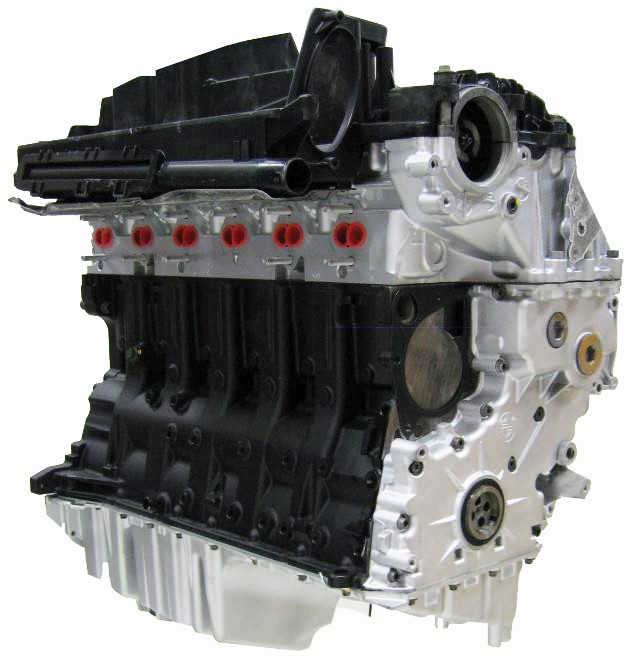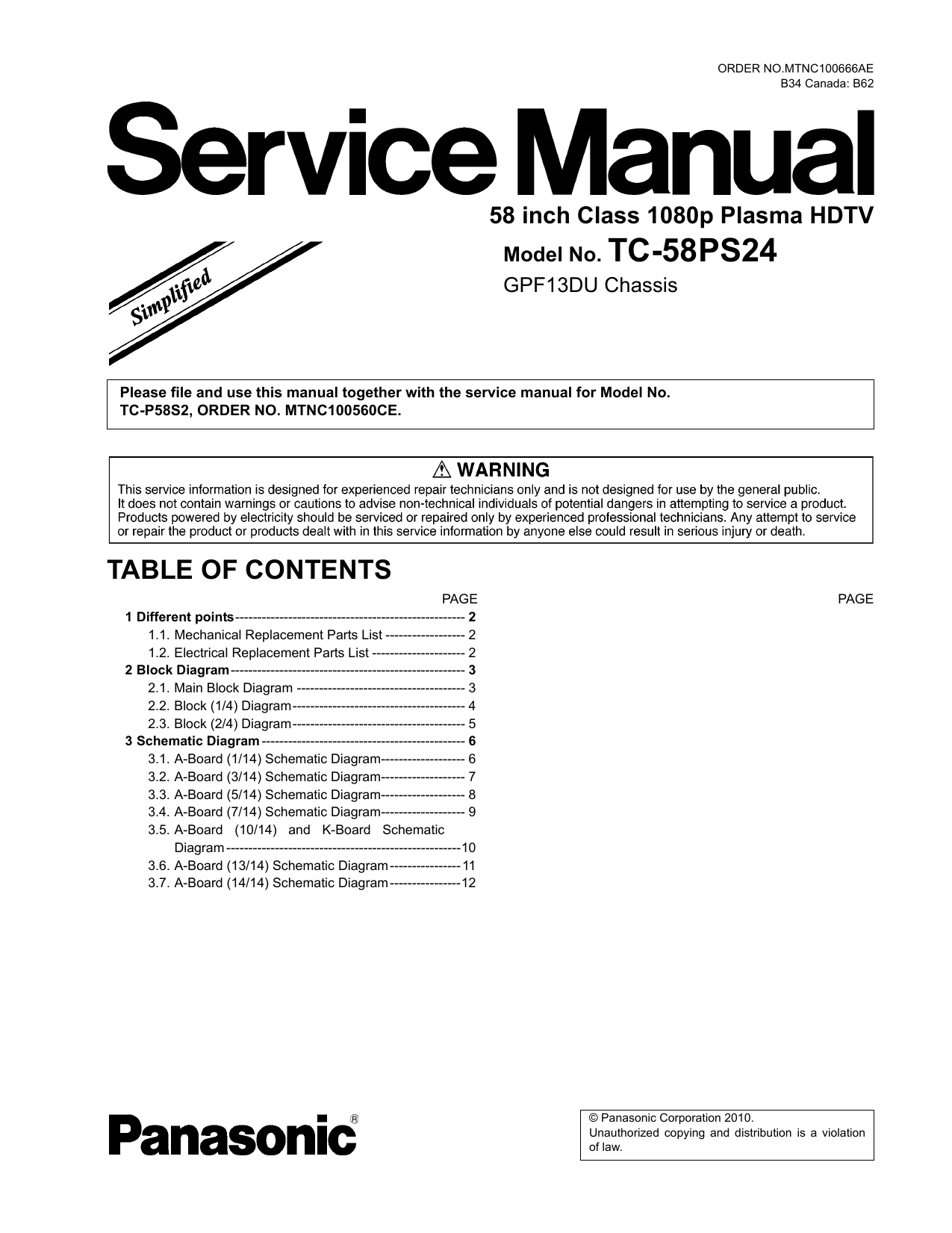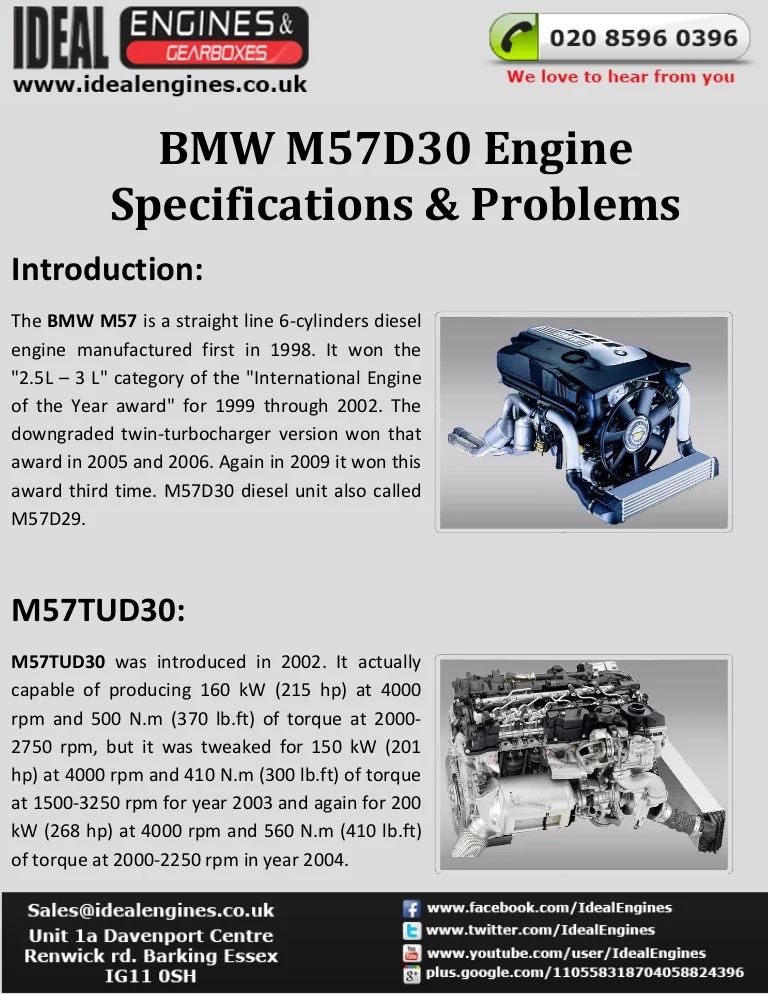| BMW M57 | |
|---|---|
| Overview | |
| Manufacturer | BMW |
| Production | 1998–2013 |
| Layout | |
| Configuration | Inline-6 |
| Displacement | 2.5 L; 152.4 cu in (2,497 cc) 2.9 L; 178.6 cu in (2,926 cc) 3.0 L; 182.6 cu in (2,993 cc) |
| Cylinder bore | 80 mm (3.15 in) 84 mm (3.31 in) |
| Piston stroke | 75.1 mm (2.96 in) 82.8 mm (3.26 in) 88 mm (3.46 in) 90 mm (3.54 in) |
| Block material | Cast iron Aluminum (TÜ2 onwards) |
| Valvetrain | DOHC |
| Compression ratio | 16.5-18.0:1 |
| RPM range | |
| Redline | 4750 |
| Combustion | |
| Turbocharger | Single Garrett or BorgWarnertwin-turbochargers with intercooler |
| Fuel system | |
| Management | Bosch DDE 4.0, 5.0, 6.0 or 7.3 (US Models) |
| Fuel type | Diesel fuel (DIN EN 590) |
| Cooling system | Water-cooled |
| Output | |
| Power output | 120–210 kW (163–286 PS) |
| Torque output | 350–580 N⋅m (258–428 lb⋅ft) |
| Chronology | |
| Predecessor | BMW M51 |
| Successor | BMW N57 |
- 2.5 litre (2497cc) 525d - M57 D25 TU inline 6-cylinder DOHC 24-valve 3.0 litre (2993cc) 530d - M57 D30 TU/T2 inline 6-cylinder DOHC 24-valve. DOES NOT cover petrol models, 535d twin turbo diesel models, or models with xDrive transmission. Transmissions Described:. GS6-17BG/DG or 37BZ/DZ 6-speed manual (N47 engine).
- It was about $20 and very detailed for most things. When on th Tradebit site, search for 'BMW X5 2007-2010 Repair Service Manual'. I'd rate it at 7/10, but there's nothing else out there, so I. Engine; M57; Bmw M57 Manuals Manuals and User Guides for BMW M57. We have 1 BMW M57 manual available for free PDF download: Service Training.
- BMW M57D30 Engine. BMW M57D30 EngineSpecifications & ProblemsIntroduction:The BMW M57 is a straight line 6-cylinders dieselengine manufactured first in 1998. It won the'2.5L – 3 L' category of the 'International Engineof the Year award' for 1999 through 2002. Thedowngraded twin-turbocharger version won thataward in 2005 and 2006.
- File Type PDF Kaeser M57 Service Manual Kaeser M57 Service Manual Recognizing the pretension ways to acquire this books kaeser m57 service manual is additionally useful. You have remained in right site to begin getting this info. Acquire the kaeser m57 service manual associate that we provide here and check out the link.
The BMW M57 is a straight-6diesel engine produced from 1998 up to 2013 in BMW's upper Austrian engine plant in Steyr.
Description[edit]
The M57 is a water-cooled and turbocharged inline six cylinder diesel engine with common-rail-injection. It was revised twice during its production time. It is based on its predecessor M51. The block and the crankcase of the first M57 engines and the TÜ (Technische Überarbeitung = revision) engines are made of cast iron, whilst the TÜ2 engines are made of aluminium instead.[1] The combustion chamber was also changed in the TÜ2.[1] The injection pressure is 1,350 bar (19,600 psi)[2] in the non TÜ engine , whilst all other engines use a pressure of 1,600 bar (23,000 psi).[2] For fuel injection, magnetic injectors are used, except from the TÜ2 OL and TOP engines, which make use of piezo injectors.[2] The common-rail-system is made by Bosch and also controlled by a Bosch DDE 4 ECU for non TÜ and DDE 5 ECU for TÜ.[3] All models are equipped with turbocharger and an intercooler. The 2.9L M57, which is found in E39 530d and E38 730d, as well as early models of E46 330d and E53 X5, is equipped with one Garrett GT2556V turbocharger. The 2.5L M57TÜ uses a Garrett GT2056V turbocharger, the 3.0L M57TÜ a Garrett GT2260V turbocharger, the M57TÜ2 a Garrett GT2260VK turbocharger, whilst the M57D30TÜTOP sports a BorgWarner KP39 high-pressure and a K26 low-pressure turbocharger.[4] The compression ratio reaches from 16.5:1 to 18.0:1, M57 engines with higher power output and more than one turbocharger have a lower compression ratio.[5] Every cylinder has two inlet and two exhaust valves as well as two chain-driven overhead camshafts.[6] The redline is 4750 rpm.
Workshop manuals. Workshop manuals. Haynes car manual; Motorcycle manuals. 2926ccm, 184pk, 135kw - M57 D30 (306D1) 3 (E46) 19.05 330 d - 2993ccm, 204pk.
Technical Data[edit]
| Engine | Bore × Stroke | Displacement | Power | Torque | Year |
|---|---|---|---|---|---|
| M57D25 | 80 mm × 82.8 mm (3.15 in × 3.26 in)[5] | 2.5 L; 152.4 cu in (2,497 cc) | 110 kW (150 PS) @ 4000 rpm | 300 N⋅m (221 lb⋅ft) @ 1750 rpm | 2001 |
| 120 kW (163 PS) @ 4000 rpm | 350 N⋅m (258 lb⋅ft) @ 2000–2500 rpm | 2000 | |||
| M57D25TÜ | 84 mm × 75.1 mm (3.31 in × 2.96 in)[3] | 120 kW (163 PS) @ 4000 rpm | 400 N⋅m (295 lb⋅ft) @ 2000–2750 rpm | 2004 | |
| 130 kW (177 PS) @ 4000 rpm | |||||
| M57D30 | 84 mm × 88 mm (3.31 in × 3.46 in)[5] | 2.9 L; 178.6 cu in (2,926 cc) | 135 kW (184 PS) @ 4000 rpm | 390 N⋅m (288 lb⋅ft) @ 1750–3200 rpm | 1998 |
| 410 N⋅m (302 lb⋅ft) @ 2000–3000 rpm | |||||
| 142 kW (193 PS) @ 4000 rpm | 410 N⋅m (302 lb⋅ft) @ 1750–3000 rpm | 2000 | |||
| M57D30TÜ | 84 mm × 90 mm (3.31 in × 3.54 in)[3] | 3.0 L; 182.6 cu in (2,993 cc) | 150 kW (204 PS) @ 4000 rpm | 410 N⋅m (302 lb⋅ft) @ 1500–3250 rpm | 2003 |
| 160 kW (218 PS) @ 4000 rpm | 500 N⋅m (369 lb⋅ft) @ 2000–2750 rpm | 2002 | |||
| 200 kW (272 PS) @ 4400 rpm | 560 N⋅m (413 lb⋅ft) @ 2000–2250 rpm | 2004 | |||
| M57D30TÜ2 | 145 kW (197 PS) @ 4000 rpm | 400 N⋅m (295 lb⋅ft) @ 1300–3250 rpm | 2006 | ||
| 170 kW (231 PS) @ 4000 rpm | 500 N⋅m (369 lb⋅ft) @ 1750–3000 rpm | 2005 | |||
| 520 N⋅m (384 lb⋅ft) @ 2000–2750 rpm | |||||
| 173 kW (235 PS) @ 4000 rpm | 500 N⋅m (369 lb⋅ft) @ 1750–3000 rpm | 2007 | |||
| 520 N⋅m (384 lb⋅ft) @ 2000–2750 rpm | |||||
| 210 kW (286 PS) @ 4400 rpm | 580 N⋅m (428 lb⋅ft) @ 2000–2250 rpm | 2006 |
Applications[edit]
- M57D25
- 2000–2003 in the BMW E39 525d (120kW)[5]
- 2001–2003 in the Opel Omega B 2.5DTI 110 kW (150 PS)[7]
- M57D25TÜ
- 2003–2007 in the BMW E60/E61 525d 120 kW (163 PS) or 130 kW (177 PS)[5]
- M57D30
- 130 kW (177 PS) and 390 N⋅m (288 lb⋅ft)
- in the Range Rover L322[5]
- 135 kW (184 PS) and 390 N⋅m (288 lb⋅ft)
- in the E39 as 530d[5]
- in the E46 as 330d/330xd[5]
- 135 kW (184 PS) and 410 N⋅m (302 lb⋅ft)
- in the E38 as 730d[5]
- in the E53 as X5 3.0d[5]
- 142 kW (193 PS) and 410 N⋅m (302 lb⋅ft)
- in the E39 as 530d[5]
- 142 kW (193 PS) and 430 N⋅m (317 lb⋅ft)
- in the E38 as 730d[5]
- M57D30TÜ
- 150 kW (204 PS) and 410 N⋅m (302 lb⋅ft)
- in the E46 as 330d/330Cd/330xd[5]
- in the E83 as X3 3.0d[5]
- 160 kW (218 PS) and 500 N⋅m (369 lb⋅ft)
- in the E53 as X5 3.0d[5]
- in the E60/E61 as 530d/530xd[5]
- in the E65/E66 as 730d[5]
- in the E83 as X3 3.0d[5]
M57D30TÜ TOP
- 200 kW (272 PS) and 560 N⋅m (413 lb⋅ft)
- in the E60/E61 as 535d
- in the E63/E64 as 635d
- M57D30TÜ2
- 145 kW (197 PS) and 400 N⋅m (295 lb⋅ft)
- in the E90/E91/E92/E93 as 325d[5]
- in the E60/E61 as 525d[5]
- 170 kW (231 PS) and 500–520 N⋅m (369–384 lb⋅ft)
- in the E65/E66 as 730d[5]
- in the E90/E91/E92/E93 as 330d/330xd[5]
- in the E60/E61 as 530d/530xd[5]
- 173 kW (235 PS) and 500–520 N⋅m (369–384 lb⋅ft)
- in the E60/E61 as 530d[5]
- in the E70 as X5 xDrive30d[5]
- in the E71 as X6 xDrive30d[5]
- M57D30TÜ2TOP
- 210 kW (286 PS) and 580 N⋅m (428 lb⋅ft)
- in the E60/E61 as 535d[5]
- in the E63/E64 as 635d[5]
- in the E70 as X5 3.0sd[5]
- in the E71 as X6 xDrive35d[5]
- in the E83 as X3 3.0sd[5]
- in the E90/E91/E92 as 335d[5]
See also[edit]
References[edit]
- ^ abAndreas39 in Bimmertoday: Die BMW-Sportdiesel: Von 524td E28 über 530d E39 bis BMW M550d F10. 21. January 2012, (German)
- ^ abcAftersales Training - Produktinformation. Kraftstoffaufbereitung Diesel.Archived March 5, 2016, at the Wayback Machine Page 4 (German)
- ^ abcBMW E60 - Datenblatt (German)
- ^TurboNews: Das Infomagazin von BorgWarner Turbo Systems February 2004, page 9 (German)
- ^ abcdefghijklmnopqrstuvwxyzaaabacadaeafKolbenschmidt: Valve Train Components and Cylinder Heads Passenger Cars Page 255 onwards.
- ^Slideshare: BMW M57D30 Engine
- ^Gert Hack: BMW 525d, Opel Omega 2.5 DTI 24 V, Saab 9-5 3.0 TiD - Alte Kameraden mit modernen DieselnArchived 2019-04-20 at the Wayback Machine, in auto motor und sport, 7 November 2001, retrieved 20 April 2019
External links[edit]
- The UnixNerd's BMW M57 engine page with photos, history and common problems.
BMW road car diesel engine timeline, 1980s-2000s — next » | ||||||||||||||||||||||||||||||
|---|---|---|---|---|---|---|---|---|---|---|---|---|---|---|---|---|---|---|---|---|---|---|---|---|---|---|---|---|---|---|
| Family | 1980s | 1990s | 2000s | |||||||||||||||||||||||||||
| 0 | 1 | 2 | 3 | 4 | 5 | 6 | 7 | 8 | 9 | 0 | 1 | 2 | 3 | 4 | 5 | 6 | 7 | 8 | 9 | 0 | 1 | 2 | 3 | 4 | 5 | 6 | 7 | 8 | 9 | |
| 4-cylinder diesel | M41 | |||||||||||||||||||||||||||||
| M47 | ||||||||||||||||||||||||||||||
| N47 | ||||||||||||||||||||||||||||||
| 6-cylinder diesel | M21 | |||||||||||||||||||||||||||||
| M51 | ||||||||||||||||||||||||||||||
| M57 | ||||||||||||||||||||||||||||||
| N57 | ||||||||||||||||||||||||||||||
| 8-cylinder diesel | M67 | |||||||||||||||||||||||||||||
M57 D30 Workshop Manual Online
1600
Fuel supply system E46 (spark ignition engines)
1. General
General function description for fuel systems.
2. Parts designation
1. Fuel tank (plastic)
18. Roll-over valve
2. Electric fuel supply pump
19. Float valve (USA only)
3. Surge chamber

20. Fuel filter
4. Pressure limiting valve

21. Pressure regulator
5. Outlet protection valve
22. 3/2-way valve (M52 USA, M73 only)
6. Suction jet pump
23. Fuel rail
7. Tank expansion line
24. Engine control unit
8. Non-return flap

25. Intake manifold
9. Filler pipe
26. Tank vent valve
10. Tank cap
27. Purge line
11. Pressure test line (USA only)
28. Vent line
11. Refueling vent line (worldwide)
29. Vacuum line (LDP USA only)

12. Fuel feed line
30. Evaporation line
13. Fuel return line
31. Carbon canister
14. Service vent line
32. Carbon canister (USA only)
15. Refueling vent line (USA only)
33. Leakage diagnosis pump (USA only)
15. Additional vent line (Japan)
34. Dust filter (USA only)
M57 D30 Workshop Manual
16. Service vent line
35. Tank leakage diagnostic module (USA only)
17. Expansion tank
3. Function description (see also drawing 5.1 / 5.2 / 5.3 / 5.4)
Fuel system
The saddle-shaped fuel tank contains the surge chamber with the electric fuel feed supply pump on its right side.
The surge chamber ensures that the fuel supply pump is properly supplied in all vehicle operating states.
The fuel is repumped from the right side of the fuel tank into the surge chamber via the suction jet pump integrated in
the tank expansion line. The suction jet pump is operated via the fuel feed line.
M57 D30 Workshop Manual Pdf
The pressure limiting valve controls the pressure required to operate the suction jet pump. The outlet protection valve
protects the fuel return line. The valve closes in the event of a pressure drop when the fuel return line is damaged or
disconnected.
This prevents fuel from escaping from the fuel tank in extreme vehicle positions (overturning, inclined position).
The non-return flap prevents fuel from splashing back in the filler pipe after shutdown of the petrol/gas pump nozzle.
Fuel supply to engine:
RA Fuel supply system E46 (spark ignition engines)
BMW AG - TIS
15.02.2013 12:06
Issue status (12/2007) Valid only until next DVD is issued
Copyright
Page - 1 -